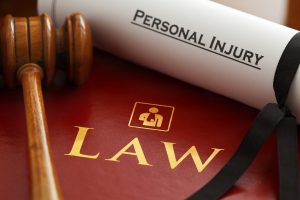 Most non-lawyers are very hesitant to go to court, hoping that their case will quickly settle. We previously wrote about when you should consider settling in your personal injury case. But what happens if settlement isn’t an option? Why do you have to go to court, when other claims simply get paid? In this post, we’ll discuss some of the situations where going to court may be your only option.
Most non-lawyers are very hesitant to go to court, hoping that their case will quickly settle. We previously wrote about when you should consider settling in your personal injury case. But what happens if settlement isn’t an option? Why do you have to go to court, when other claims simply get paid? In this post, we’ll discuss some of the situations where going to court may be your only option.
The Parties Cannot Agree on Liability
The first step in any personal injury case is determining who was at fault for the accident. In some cases, liability is obvious – someone who ran a red light and caused an accident because they were texting on their smartphone was obviously negligent. In other cases, it can be a lot harder to determine who was at fault. This may be because the facts are in dispute, people don’t know what really happened, or both parties believe the other to be at fault. It may ultimately require a judge or a jury to decide who was at fault in the accident.
 Georgia Injury Lawyers Blog
Georgia Injury Lawyers Blog


 Maybe you’ve been in an accident and you’re hurting. It’s a difficult and harried time – doctor’s appointments, physical therapy, you’re missing work, and the bills are piling up. Unfortunately, many people struggle through instead of getting the help they need. A personal injury attorney can help you through this process and give you peace of mind so that you can focus on your recovery and your future. In this post, we’re going to discuss exactly how a lawyer can help you move forward.
Maybe you’ve been in an accident and you’re hurting. It’s a difficult and harried time – doctor’s appointments, physical therapy, you’re missing work, and the bills are piling up. Unfortunately, many people struggle through instead of getting the help they need. A personal injury attorney can help you through this process and give you peace of mind so that you can focus on your recovery and your future. In this post, we’re going to discuss exactly how a lawyer can help you move forward. 